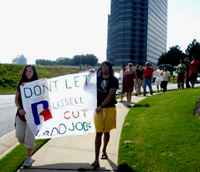Finance:Sweatshop labor fallacy
Please use PROD only on articles. It is proposed that this article be deleted because of the following concern:
If you can address this concern by improving, copyediting, sourcing, renaming, or merging the page, please edit this page and do so. You may remove this message if you improve the article or otherwise object to deletion for any reason. Although not required, you are encouraged to explain why you object to the deletion, either in your edit summary or on the talk page. If this template is removed, do not replace it. This message has remained in place for seven days, so the article may be deleted without further notice. Nominator: Please consider notifying the author/project: {{subst:proposed deletion notify|Finance:Sweatshop labor fallacy|concern=It it neither controversial nor a fallacy to say that paying workers extremely low wages harms said workers. The focus on "profit margins of TNCs" means this likely a troll.}} ~~~~Timestamp: 20210826113855 11:38, 26 August 2021 (UTC) Administrators: delete |
| It has been suggested that this page be merged into Sweatshop. (Discuss) Proposed since August 2021. |
The "sweatshop labor fallacy" is a term used by certain economists[1] to describe the opinion that trade hurt workers in poor exporting countries because those workers are paid very low wages.[1][full citation needed] Usually expressed in emotional terms[2][full citation needed][page needed] and sometimes encouraging to boycott the firm that outsource work in a low-wage country. According to proponents of this practice, low-wage workers would be even worse off if the firm shut down its factory in that country.[citation needed]
See also
- Gains from trade
- Comparative advantage
References


